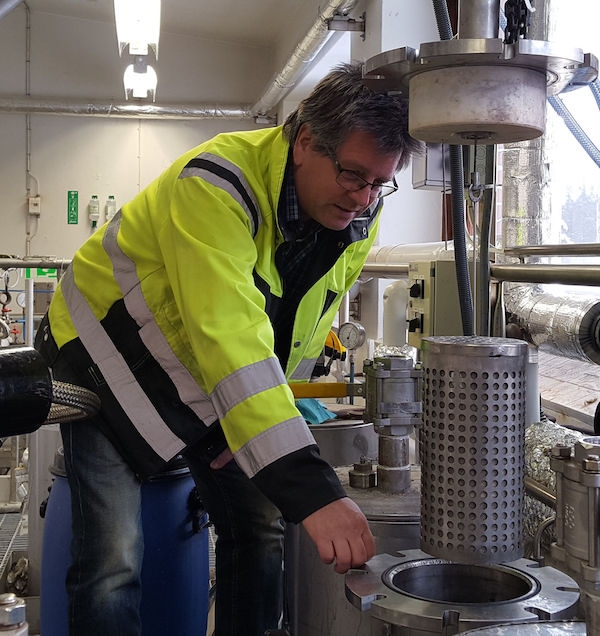
Features
Paper
Pulp
Research & Innovation
MoRe Research installs chip impregnation pilot equipment
February 11, 2019 – MoRe Research, a Sweden-based pulp and paper R&D company, has installed pilot equipment aimed at real-time studies of the wood chip impregnation process.
February 11, 2019 By P&PC Staff
 Torbjörn Sjölund
Torbjörn Sjölund It is integrated with MoRe’s pilot digester plant and used to study how wood chips are impregnated and cooked under various conditions. Studies can be conducted for paper pulps and dissolving pulps. The impregnation pilot is a result of a PhD work at Helsinki University and has been further developed by MoRe.
Impregnation studies are of interest for all chemical pulping processes irrespective of if the end-product is pulp for paper or board production or dissolving cellulose. It is also useful when pulp mills want to increase production or have problems due to insufficient impregnation.
This unique pilot equipment was developed during PhD work at Helsinki University. The wood chips are placed in the pilot’s basket and the impregnation process is monitored when the chip weight increases as air is gradually replaced by cooking liquor in the chips.
Related news
MoRe Research develops steel belt for strong packaging made of high-yield pulp
Eurocon, MoRe collaborate for DNCG collection systems
The original pilot has been developed further by MoRe and adapted to the existing pilot digester plant in order to facilitate combined impregnation and cooking studies. Impregnation studies can be done for different chip sizes, tree species, temperatures and pressure conditions as well as for different chemical pulping processes.
“We have bought the pilot as it is a perfect match for our unique pilot digester plant,” says Michael Sjögren, process consultant at MoRe Research. “This method allows us in a realistic way to study the impregnation process before cooking. As the pilot is integrated with our digester plant we can in a realistic way simulate the whole impregnation and cooking process for a customer and achieve relevant results. An optimized way of running the process with customer specific variables can therefore be set.”
Apart from customer specific projects, MoRe says the pilot equipment is also useful in research projects, including Jessica Gard Timmerfors’s present PhD work concerning optimized chip cutting in the MCS pilot drum chip cutter for sulphite pulp.
Print this page